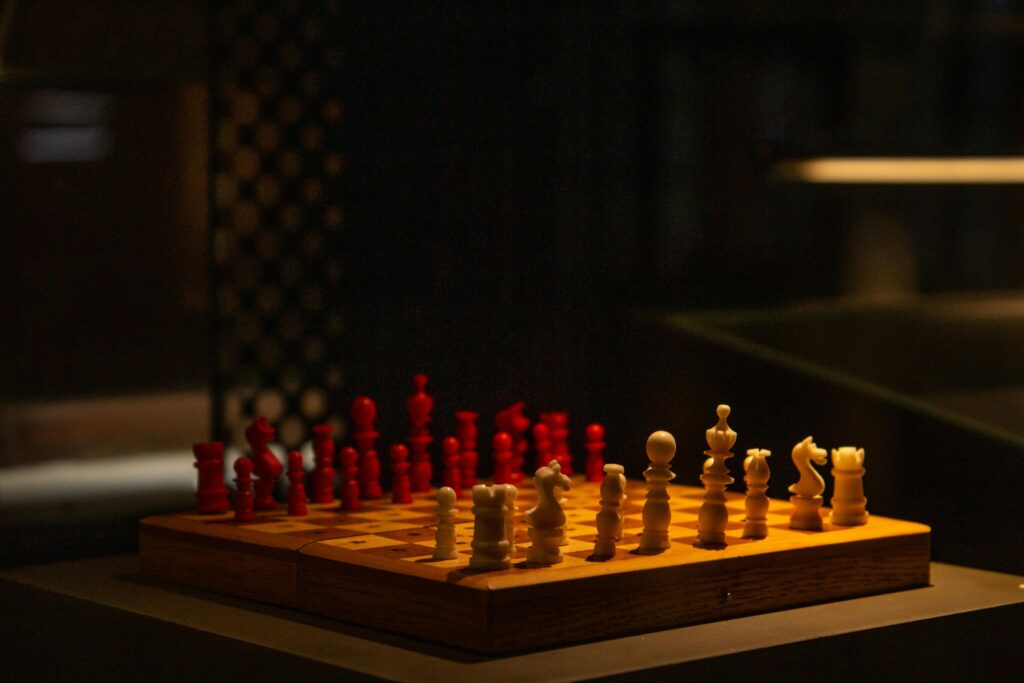Chess isn’t just a board game. It’s a quiet little world where your child can learn to think clearly, focus better, and become more confident. It’s not about winning or losing. It’s about learning how to solve problems, how to stay calm, and how to plan ahead. These are the kinds of skills that help in school, in friendships, and even later on in life.
Online Chess Training
Landscape of Chess Training in Handsworth and Why Online Chess Training is the Right Choice
In a place like Handsworth, Birmingham, chess has always had a quiet charm. You’ll find a few clubs here and there, maybe a weekend meetup at a local hall, and sometimes a friendly coach giving lessons. It’s cozy, familiar. But here’s the truth—it’s also a bit limited.
See, many local coaching options are great for socializing, but they don’t always offer a path for real growth. The training can feel random. Sometimes the coach just plays a few games with the students and gives quick tips.
Other times, the lesson depends on who shows up and how many kids are there. There’s no clear plan, no roadmap.
That’s where online chess learning steps in like a breath of fresh air.
Online training isn’t just about being on a screen. It’s about opening the door to world-class learning—right from your living room. It’s flexible, structured, and focused. Your child doesn’t have to wait for the weekend or travel far. They can learn, play, and grow every single week with expert coaches.
And with good online programs, like the Global School of Chess, there’s a clear plan. Your child learns one step at a time. From how the pieces move to deep strategies that even grown-ups struggle with, it’s all laid out in a way that’s easy to follow and exciting to learn.
In Handsworth, where traditional chess coaching is still finding its way, online training is the smarter choice. It offers more freedom, better teaching, and most importantly—it fits into your child’s life without stress.
Let’s now look at how the Global School of Chess takes this even further and becomes the best choice not just in Handsworth, but around the world.
How Global School of Chess is The Best Choice When It Comes to Chess Training in Handsworth
Imagine this: your child logs into a live class where they’re greeted by a warm, friendly coach. The coach is a FIDE-certified chess expert who knows exactly how to make learning fun, easy, and exciting.
The lesson begins—not with a lecture—but with a story or a puzzle that sparks curiosity. Your child is hooked, smiling, and thinking. That’s how every class starts at the Global School of Chess.
What makes Global School of Chess special is not just its coaches, but its heart. Every lesson is built to help your child grow—not just in chess, but in life.
The classes are live and interactive, so your child gets to ask questions, share ideas, and even laugh a little. No one gets left behind. The lessons are designed based on your child’s level, whether they’re a total beginner or already beating the grown-ups in the family.
And it’s not just classes. Your child will get to play in fun, friendly tournaments every two weeks. They’ll meet other kids from different parts of the world, make friends, and learn from real games.
There’s also one-on-one coaching for those who want a little extra boost. It’s like having a personal chess guide who’s there just for you.
Most importantly, Global School of Chess follows a strong, clear curriculum. Every student knows where they are and where they’re headed. There’s no guessing, no confusion. Just progress—step by step.
Parents love the academy because it’s safe, reliable, and full of heart. Kids love it because it feels like an adventure.
And the best part? You don’t have to wait. You can sign up for a free trial class today and see the magic yourself. Just visit gschess.com/take-a-free-trial-class.
Offline Chess Training
In many cities and towns, especially in places like Handsworth, Birmingham, traditional or offline chess training has been around for years. You might know someone who teaches chess in a local community center, or maybe your child’s school has a chess club that meets once a week. It feels familiar. It feels “real” because it’s face-to-face.
But let’s take a moment to look deeper.
Offline chess training often depends on who’s available to teach. Sometimes, it’s a retired player with a lot of passion but no clear plan. Other times, it’s a busy coach trying to manage ten kids at once. And sometimes, it’s just a group of children playing casually with not much learning happening at all.
There’s also the question of time. You have to drive your child to the class, wait around, and then drive back. If your child misses a class due to a cold or a family trip, they fall behind. There’s no recording to watch later, no way to catch up.
In offline settings, the coaching is usually the same for every child, no matter their skill level. A beginner and an advanced player might be sitting in the same group, hearing the same lesson. That means some kids are bored, while others are lost.
And here’s another thing. In an offline class, your child might get only a few minutes of personal attention. Most of the time is spent watching the coach show moves on a board or waiting for a turn to play.
Sure, there are some great coaches out there who do their best. But they’re working with limits—time, space, and often, not enough resources to give your child the full experience they deserve.
That’s why many parents are now rethinking chess coaching. They want something better. Something that fits today’s world. Something where every minute counts, where every lesson helps their child grow.
Now, let’s look at the deeper challenges of offline learning that are often hidden at first but become clear over time.
Drawbacks of Offline Chess Training
On the surface, offline chess training might seem fine. You meet the coach, you see the board, you get that “real” classroom feeling. But when you look a little closer, you start to notice the cracks. Especially when compared to what online training can offer, the differences are hard to ignore.
The biggest problem? Lack of structure.
Most offline chess lessons don’t follow a clear path. There’s no step-by-step plan. One week your child might learn about checkmates, and the next week they’re playing blitz games with no guidance. It’s like trying to read a book by jumping from one random chapter to another.
Another challenge is personal attention.
In a room with 8 or 10 kids, how much one-on-one time can your child really get? Maybe a couple of minutes, if that. And during that time, the coach is still watching the room, helping others, and managing noise. It’s not ideal. Your child deserves more than a rushed answer or a quick nod.
Offline classes also can’t adapt quickly.
Let’s say your child is learning fast and ready for the next level. Or maybe they’re struggling and need more time. In offline settings, it’s hard to adjust the lessons. Everyone is taught at the same pace. That’s frustrating for both fast and slow learners.
Then there’s travel.
Driving to and from classes might seem like a small thing at first. But after a few weeks, it adds up. Time spent in traffic, missed dinners, tired evenings—it all becomes part of the cost.
And don’t forget about consistency.
Offline coaches can get busy or cancel classes. Weather, holidays, or even the coach being sick can mean missed sessions. There’s no recording to catch up. No way to review what was missed.
But maybe the hardest part? There’s no community.
Your child might meet a few kids locally, but there’s no global exposure. No way to connect with kids from other countries, no regular tournaments with players from different places, no excitement of seeing how chess is played in other parts of the world.
In today’s connected world, your child can—and should—get so much more.
And that’s where online chess learning shines. Especially with programs like the Global School of Chess, where everything is built to help your child succeed with joy, not stress.
Now that we’ve looked at the offline side, let’s explore the best academies in Handsworth, starting with the one that stands far above the rest.
Best Chess Academies in Handsworth, Birmingham
When it comes to chess coaching in Handsworth, there are a few names that pop up now and then. Some are local clubs, some are part-time coaches, and some are hobby-based programs. But if you’re looking for a place where your child can truly grow—not just play a few games on weekends—you’ll want to know what each academy really offers.
We’ve done the research. And what we found is that while there are a few decent options around, none come close to what the Global School of Chess is doing for students in Handsworth and across the world.
Let’s begin with the best of them all.
Global School of Chess
If you want the absolute best for your child, there’s no better place than Global School of Chess.
This academy isn’t just another online program. It’s a full experience—built from the ground up to help kids become smarter, calmer, and more confident through chess. It’s not just about making moves on a board. It’s about building life skills that stay with your child forever.
Every coach at Global School of Chess is FIDE-certified. That means they’re real professionals who know the game deeply—and know how to teach it in a way that’s fun, simple, and easy to understand.
But what really makes it special is how the academy puts your child first.
The lessons are live and interactive, which means your child gets to ask questions, solve puzzles, and talk with the coach in real time. It’s not like a YouTube video where they just sit and watch. It’s real learning.
Each student is placed in the right group based on their level. Whether your child is a complete beginner or already playing in tournaments, they’ll get lessons that match their pace and push them gently forward.
Every class follows a structured path. That means your child learns step by step, building on what they already know. No confusion. No skipping ahead. Just solid progress—one class at a time.
And it’s not just about lessons.
Every two weeks, students get to play in friendly online tournaments. These games are not only fun, but they also help your child practice, improve, and stay motivated. Plus, they get to meet kids from all over the world—which builds confidence and a love for the game.
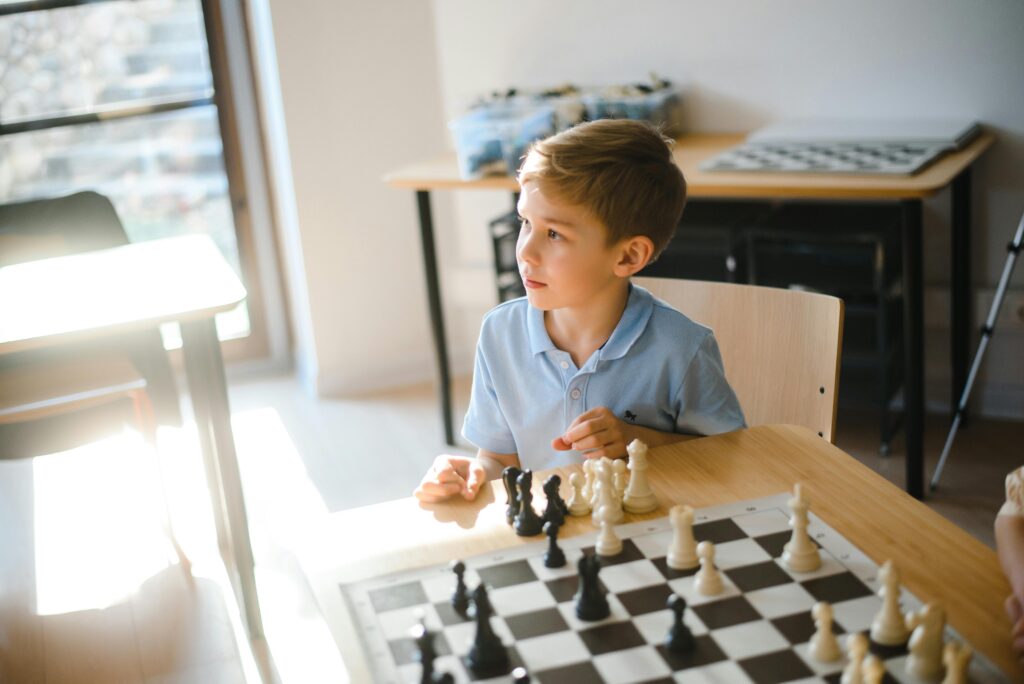
Global School of Chess also offers private coaching. If your child wants extra help or wants to prepare for a big event, they can get one-on-one time with a coach who knows exactly how to guide them.
And parents? You’ll love the clear communication. You get progress reports, updates, and easy access to coaches whenever you need help or have questions.
Most importantly, you don’t have to guess if it’s right for your child.
You can try a free trial class today and see everything for yourself. No pressure. Just a fun, friendly session where your child gets to experience what real chess learning feels like.
Just visit gschess.com/take-a-free-trial-class and book your spot.
Now, let’s take a quick look at the other academies that are active in or around Handsworth.
City Chess Club (Local Community Option)
City Chess Club holds casual meetups in local halls and community centres. Kids show up, a coach teaches a bit, and then they play games. It’s friendly and easy for drop‑in sessions.
But there’s no clear lesson plan or step‑by‑step structure. That means progress is random. One week your child might focus on openings, the next week on tactics—without building on what they learned before.
Handsworth Chess Academy
This is a small, local academy run by an older coach who’s passionate about the game. He knows chess well and cares a lot about the kids. But there’s no curriculum, no trained assistant coaches, no live online classes.
Some students do well, but others fall behind because the teaching can’t adapt to different levels. There’s also no option to play in regular tournaments outside of Birmingham.
Birmingham Junior Chess Centre
The Junior Chess Centre hosts weekly in‑person classes and local competitions. It’s more organised than a casual club and there’s some effort to group students by ability. Still, it lacks the flexibility of online learning.
Scheduling clashes, travel time, and limited coaching hours mean your child might miss classes or struggle to catch up. And there’s no international exposure for students who want to play beyond local peers.
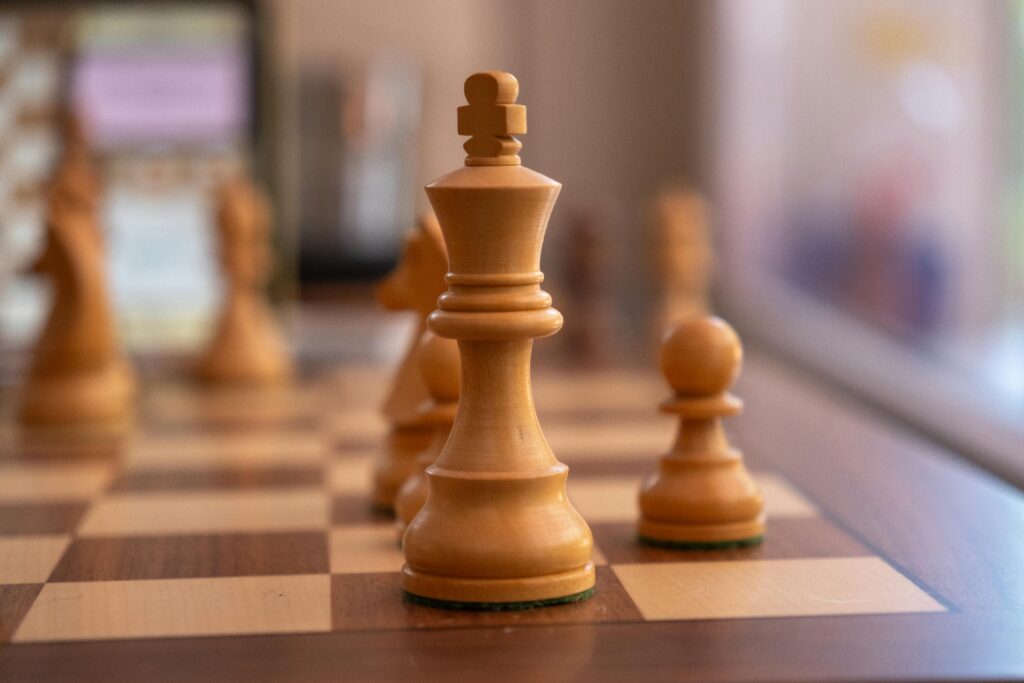
Elite Chess Tutors Birmingham
This is a private tutor service. If you want one‑on‑one lessons, they can be helpful. But private tutors are expensive and availability is limited—especially if you want a tutor with proper chess credentials. Just one tutor means your child’s progress depends heavily on that one person, rather than a full team and structured program.
Why Online Chess Training is The Future
The future of learning isn’t in a classroom—it’s wherever your child is. And when it comes to chess, that future is already here. Online chess training is not just a substitute for in-person learning; it’s a complete upgrade. Let’s go deeper into why this shift is happening—and how you can use it to give your child a serious edge.
It’s Not Just Convenient—It’s Smarter
Yes, online training saves time. No travel, no packing bags, no missed dinners. But what’s more powerful is how online learning makes chess smarter. The technology behind platforms like Global School of Chess allows lessons to be interactive, personalized, and paced for each student.
Every student gets tracked individually. Their strengths, weaknesses, and habits are monitored over time. That means the coach knows exactly when to push, when to pause, and how to teach the next lesson—not based on guesswork, but on real data.
This kind of “smart teaching” just isn’t possible in offline group classes.
Global Exposure Builds Real-World Skills
When your child learns chess online, they don’t just learn how to move pieces—they learn how to compete, connect, and communicate with students from all over the world.
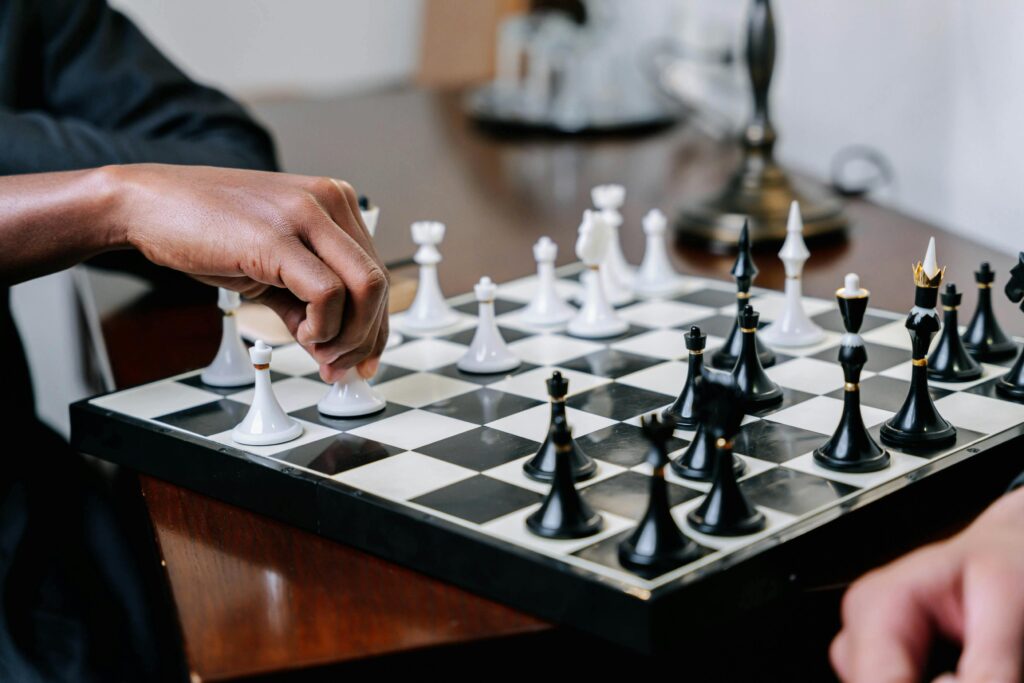
This is a life skill.
Kids who engage with international peers build confidence, improve communication, and develop a global mindset. These are the same skills they’ll need for future jobs, leadership roles, and even university interviews.
Parents who think long-term know this: a child who learns to think clearly and speak confidently in an online setting is already ahead.
More Than Just Play—It’s Performance Training
Online chess platforms like Global School of Chess don’t stop at teaching openings or tactics. They build routines.
Students learn how to prepare for a game. How to handle pressure. How to review their losses and bounce back. These lessons are built into the training—not added on.
It’s not just about playing games. It’s about becoming mentally strong. That’s the kind of growth that lasts well beyond the chessboard.
Actionable Advice for Parents and Schools
Here’s what you can do right now to help your child get the most from online chess:
1. Pick a program with a clear curriculum.
Don’t settle for random YouTube videos. Choose an academy that follows a structured path so your child always knows what they’re working on.
2. Schedule regular practice.
Set two fixed days a week for chess class or practice. This turns learning into a habit. Global School of Chess even offers customized schedules to fit around school hours.
3. Ask for feedback.
Don’t be shy. Ask the coach how your child is doing. The best academies will happily share insights and growth reports.
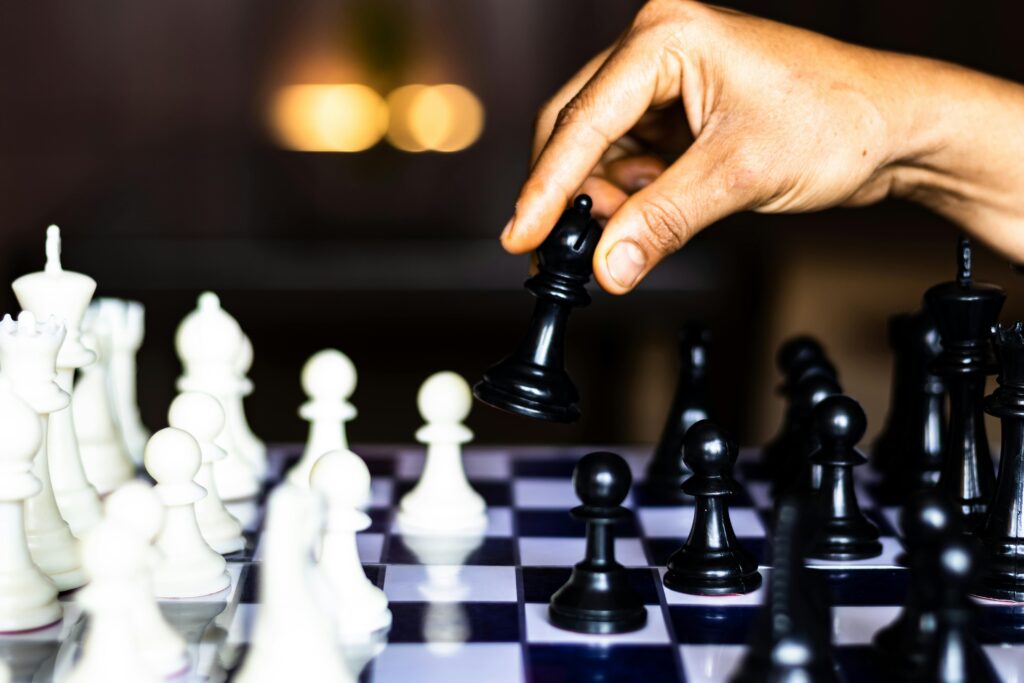
4. Encourage tournament play.
Tournaments help students handle stress, make quicker decisions, and learn from real outcomes. Aim for at least one every month.
5. Mix group and private lessons.
Group sessions build social learning. Private sessions offer deep dives into strategy. A mix of both is often the best approach.
How Global School of Chess Leads the Online Chess Training Landscape
In a world where online learning is becoming the new normal, one name stands out at the very top of the chess education pyramid—Global School of Chess. But what makes it so different? What turns it from just another online academy into a full-blown, future-ready learning ecosystem?
The answer lies in three things: structure, scale, and soul. Let’s unpack each one—and discover how GSChess is setting a new global standard in online chess education.
A World-Class System, Not Just a Series of Lessons
At Global School of Chess, everything is by design. From the first time a child logs in to their hundredth game, nothing is left to chance.
The academy follows a tiered curriculum that grows with the student—from absolute beginner to tournament-ready advanced. Each level has clear learning goals, a completion checklist, and performance reviews. This is how true progress is measured—not by guesswork, but by data and outcomes.
Unlike most coaching setups that offer lessons as a service, GSChess operates like a true learning institution—with systems, progress paths, and teaching strategies that mimic the best of modern education.
Why This Matters for Parents and Partners
When you put your child in a program, you want to know three things:
- Are they learning something new each week?
- Are they enjoying it?
- Are they improving over time?
Global School of Chess answers all three with confidence—and with proof.
For every student, there’s a personal progress dashboard. It tracks what they’ve learned, where they struggle, and how they’re improving. Coaches use this to customize lessons. Parents use this to stay informed. And students use it to stay motivated.
This makes GSChess perfect for not only families—but also for schools, afterschool programs, and learning centers who want a plug-and-play system that works.
Coaching That’s More Than Just Instruction
Let’s be honest. A good coach can change a child’s life.
At GSChess, coaches aren’t just chess experts. They’re mentors, motivators, and mindset builders. Each one goes through rigorous training—not just in chess knowledge but in how to teach kids, how to spot learning styles, how to give feedback that builds confidence.

Coaches meet weekly to discuss student progress, update lesson strategies, and plan future curriculum changes. This ongoing investment in coach quality is what keeps GSChess ahead of every other academy.
And with access to coaches from multiple time zones, scheduling is flexible—no matter where in the world the student is.
Building Digital Community the Right Way
Most online classes feel cold and disconnected. Not here.
Global School of Chess has built a thriving, global chess community where kids from over nine countries learn, play, and grow together. Every other week, students join safe, monitored online tournaments. They cheer each other on, review games together, and even form study groups.
The emotional bond this creates is priceless. Children feel seen. They feel supported. And they feel like they’re part of something bigger than just a class.
For businesses and schools looking to add value to their programs, this kind of built-in community and engagement is pure gold.
Actionable Strategies for Parents, Schools, and Partners
Here’s how you can leverage the Global School of Chess advantage right now:
1. Embed chess into your afterschool program.
You can easily add GSChess to your enrichment options. Their team handles scheduling, onboarding, and even performance reporting.
2. Offer it as a digital club.
If you’re running a school or learning center, chess is a brilliant, low-cost, high-impact addition that builds critical thinking. Let GSChess provide the teaching while you focus on the outreach.
3. Add it to employee wellness programs.
Businesses that care about family perks can sponsor online chess for employees’ children. It’s unique, developmental, and builds goodwill fast.
4. Partner for events or tournaments.
Host a co-branded online chess event with GSChess for your community, company, or school. They handle the logistics, you get the engagement.
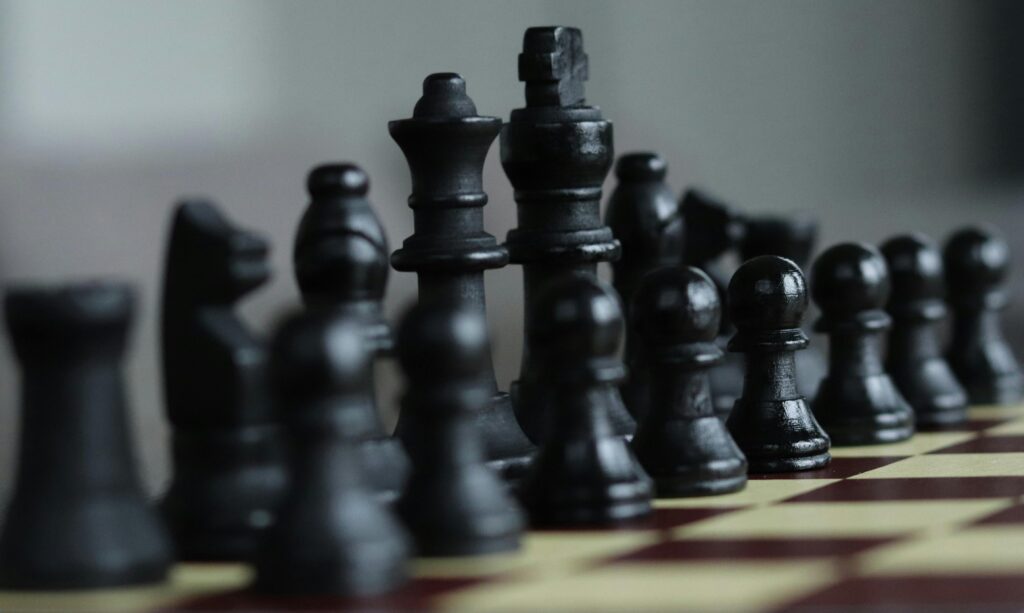
5. Use it to build leadership skills.
Encourage middle and high school students to become peer coaches, team captains, or tournament hosts within the platform—creating a full leadership path.
Complete Ranking List for All Chess Coaching Academies in the United Kingdom
Wrapping It Up
Chess isn’t just about black and white pieces on a board. It’s about how your child thinks when life gets tricky. It’s about slowing down, planning ahead, and staying calm when things don’t go as expected. These are life lessons—and the right chess academy can teach them in a way your child will never forget.

